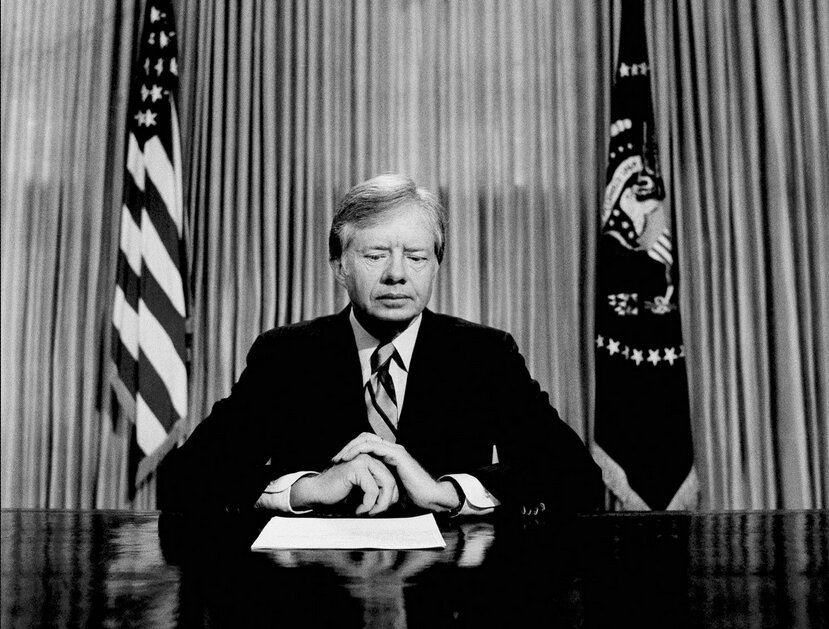Iran (IMNA) - Carter grew up in a farming family and initially worked as a peanut farmer. After graduating from the U.S. Naval Academy in 1946, he served as a naval officer before returning to Georgia in 1953 to take over his family's farm following his father's death. His political career began in 1962 when he was elected to the Georgia State Senate. Despite a setback in a gubernatorial bid in 1966, he successfully campaigned for governor in 1970, advocating for civil rights and government reform.

Presidency (1977-1981)
Carter's presidency was characterized by both notable achievements and significant challenges. He took office on January 20, 1977, promising to restore integrity to the White House after the Watergate scandal.
Foreign Policy
Normalization of Relations with China: Carter formally recognized the People's Republic of China in 1979, which significantly improved diplomatic relations between the two nations after years of isolation.
Panama Canal Treaties: In 1977, he negotiated treaties that returned control of the Panama Canal to Panama, demonstrating respect for international agreements and improving relations with Latin America.
Domestic Policies
Creation of New Departments: Carter established the Department of Education and the Department of Energy, aiming to improve educational standards and address energy shortages, respectively. He also founded the Federal Emergency Management Agency (FEMA) to better coordinate disaster response efforts.
Environmental Initiatives: Carter expanded the national park system significantly, protecting over 157 million acres of land in Alaska through the Alaska National Interest Lands Conservation Act.

Challenges
Carter's presidency faced significant challenges that ultimately affected his popularity:
Economic Issues: His administration dealt with high inflation and unemployment rates, culminating in an energy crisis that led to fuel shortages and economic recession during his final year in office. Inflation peaked at around 13.5% in 1980.
Carter's presidency ended with his defeat by Ronald Reagan in November 1980.
Post-Presidency Contributions
After leaving office, Carter remained active in public life. He founded The Carter Center in 1982, focusing on global health initiatives and democratic governance. He also authored over thirty books.


Your Comment